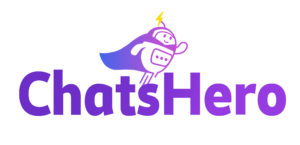ChatGPT is Revolutionizing Business Chatbots: A Game Changer for Customer Service

AI's Impact on Jobs: A Mixed Picture
Job Transformation vs. Job Displacement: One of the central themes of the article would be the dual impact of AI on jobs. While AI, including ChatGPT, can automate certain tasks and roles, it also creates new opportunities and transforms existing ones.
- Job transformation: Many roles will shift in nature. Employees in marketing, customer support, content creation, and administration will need to focus more on tasks that require critical thinking, creativity, and emotional intelligence, while leaving routine tasks to AI.
Job displacement: Repetitive and low-skill jobs, such as call-center positions or data-entry roles, are at risk of being replaced by AI automation. However, these roles may evolve into higher-level tasks that require more complex decision-making or empathy—skills AI cannot easily replicate.
New job categories: As businesses adopt AI tools, new job roles will emerge, including positions for AI trainers, data analysts, ethics specialists, and AI consultants. These roles will require workers to understand AI systems, manage their deployment, and ensure they are used responsibly and effectively.
Ethical and Social Implications
- Bias and fairness: AI systems can inherit biases from their training data, which could lead to discriminatory outcomes in hiring, customer service, or performance evaluations. Ensuring that AI tools are fair and unbiased is a critical concern.
- Privacy: As AI systems handle sensitive information, ensuring data privacy and security will be essential. Businesses will need to implement strict safeguards to protect customer and employee data.
- Workplace culture: The introduction of AI into the workplace raises questions about human relationships, employee well-being, and the potential for job alienation. Striking a balance between leveraging AI’s capabilities and maintaining a healthy work environment is crucial.
The Future of AI in the Workplace
- Increased automation: Over time, AI technologies like ChatGPT will become more adept at handling even more complex tasks, leading to greater automation across industries.
- AI-human collaboration: Rather than replacing humans, the future of work will likely involve AI-human collaboration, where AI acts as a support tool that augments human abilities, helping employees become more efficient and productive.
- Continuous adaptation: As AI technologies progress, workers will need to engage in continuous learning and upskilling to stay relevant in a changing job market.
